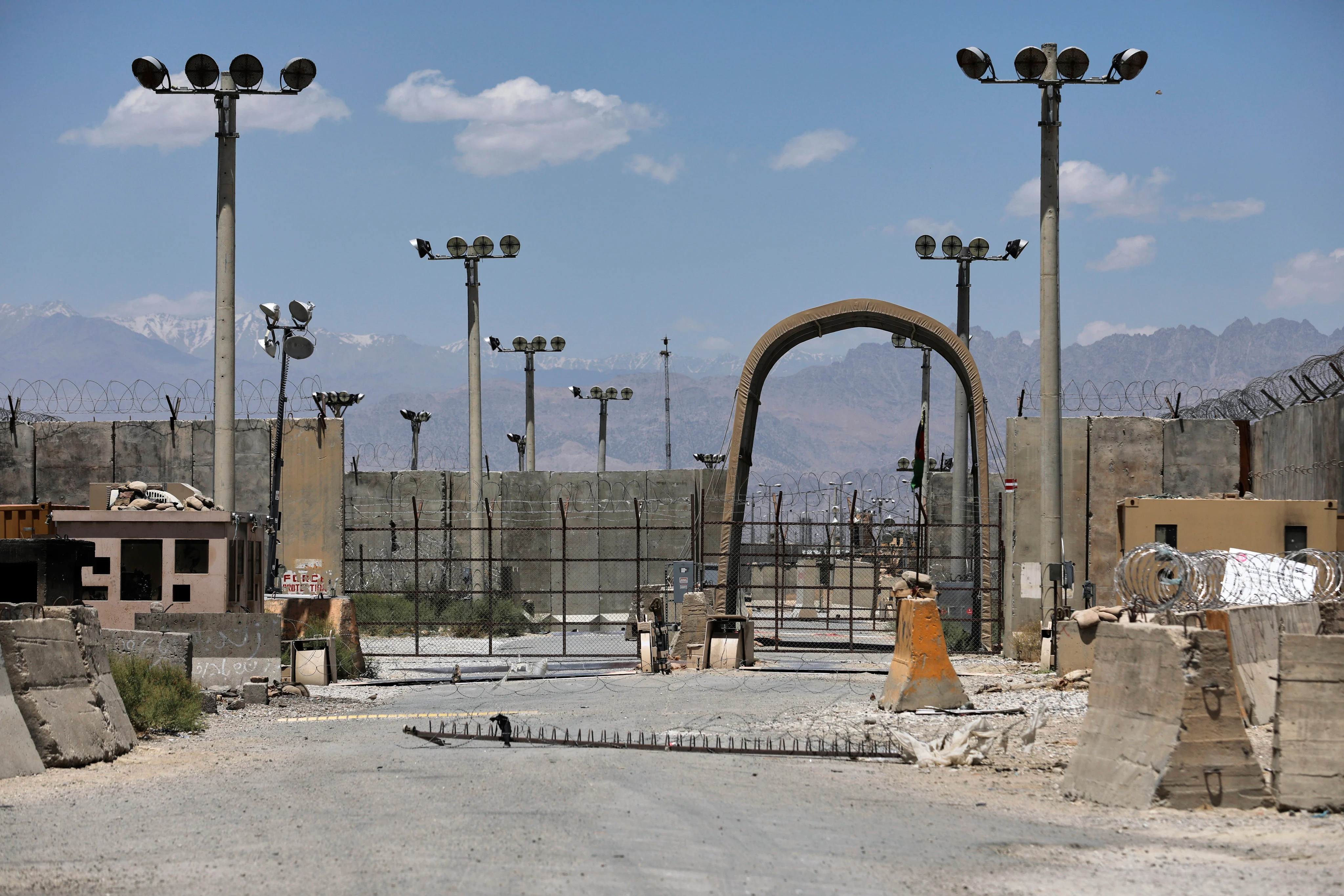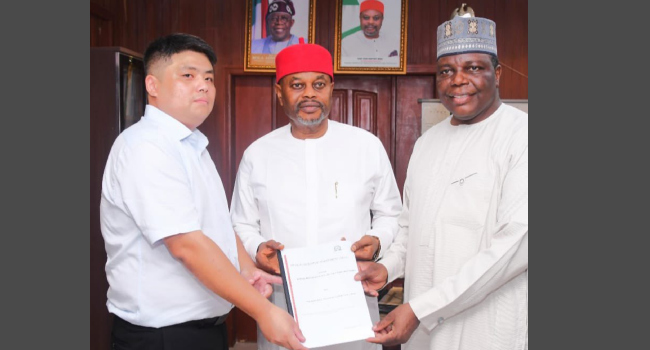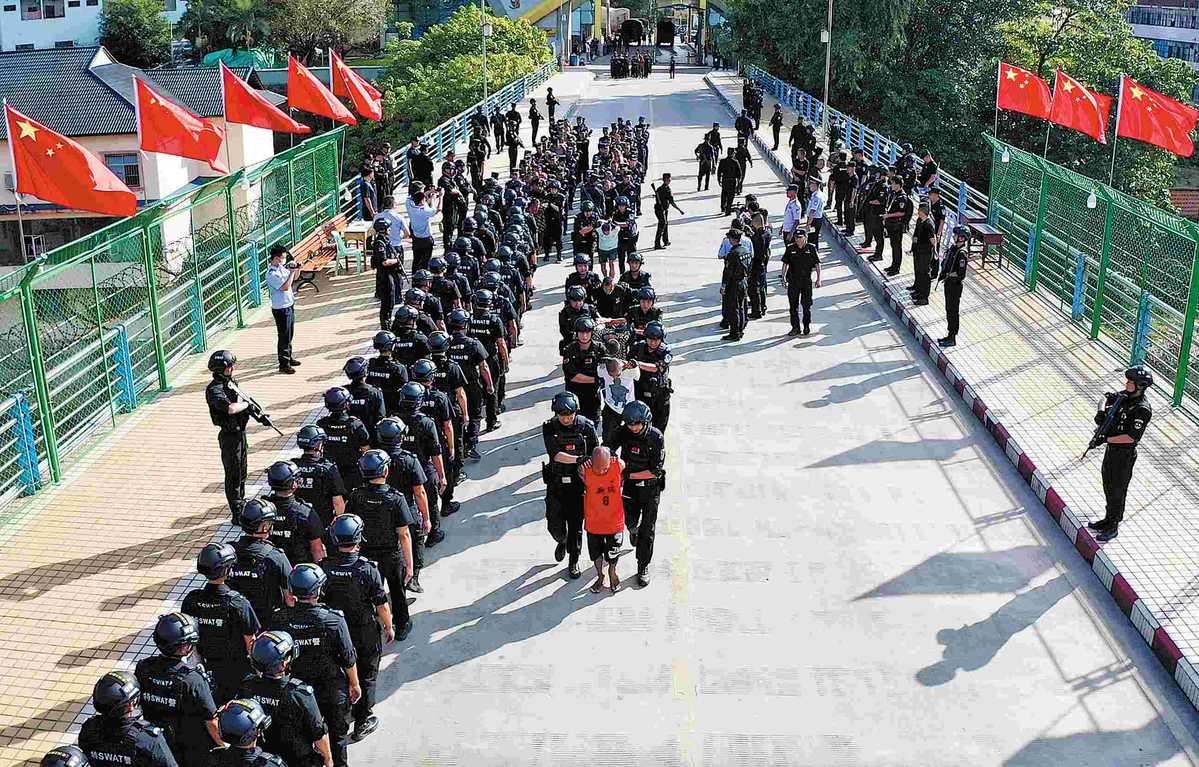By Laura Zhou,Seong Hyeon Choi,Shi Jiangtao
Copyright scmp

US President Donald Trump’s push to retake Afghanistan’s Bagram Air Base, framed as a response to China’s nuclear build-up in Xinjiang, risks destabilising an already fragile region and could once again turn the war-torn nation into a flashpoint in the US-China rivalry, observers warn.
The historic Soviet-built base is located roughly 70km (43 miles) north of Kabul and less than 800km from Afghanistan’s border with the Xinjiang Uygur autonomous region in western China. It was America’s largest military installation in the country until its chaotic 2021 withdrawal, which paved the way for the Taliban’s return to power.
“We’re trying to get it back,” Trump said of Bagram during a joint press conference with British Prime Minister Keir Starmer in London on Thursday. “One of the reasons we want the base is, as you know, it’s an hour away from where China makes its nuclear weapons.”
On Friday, after returning to the White House, Trump reiterated his stance, saying: “We should have never given it up.” He added that discussions were under way with Afghanistan about regaining control of the base.
Beijing and the Taliban government swiftly pushed back.
“China respects Afghanistan’s independence, sovereignty and territorial integrity,” Chinese foreign ministry spokesman Lin Jian said on Thursday.
“Afghanistan’s future should rest in the hands of the Afghan people. Let me stress that stirring up tension and confrontation in the region will not be supported. We hope all parties will play a constructive role for regional peace and stability.”
Kabul also rejected the proposal.
“Afghanistan and the United States need to engage with one another … without the United States maintaining any military presence in any part of Afghanistan,” Afghan foreign ministry official Zakir Jalal posted on social media, while expressing openness to economic and political ties based on mutual respect and shared interests.
Zhu Yongbiao, director of the Centre for Afghanistan Studies and executive director of the Belt and Road Research Centre at Lanzhou University, said Trump’s remarks were less about China and more about deflecting blame for policy failures during his previous term.
“Trump is merely using China as an excuse,” he said. “It was under his leadership that negotiations with the Taliban began, which eventually led to the signing of the Doha Agreement and the final withdrawal of US forces.”
He added that Trump’s concern was likely to have stemmed from fears that the withdrawal could tarnish his political legacy.
Trump has consistently blamed his predecessor Joe Biden for America’s tumultuous exit from Afghanistan, widely seen as a major setback and a symbol of waning US influence in the Middle East and on the global stage.
On Thursday, he slammed Biden for “gross incompetence” in relinquishing the base.
“It’s one of the most powerful bases in the world in terms of runway strength and length,” Trump said. “You can land anything on there. You can land a planet on top of it.”
Zhu downplayed concerns that a potential US return to Afghanistan posed a strategic threat to China. “Given China’s current strength and influence, one or two military bases near its border are unlikely to pose any real risk to its national security or actual interests,” he said.
However, he warned that a US redeployment could strain US-Afghan relations and heighten regional tensions, triggering ripple effects on terrorism and extremism across Central and South Asia.
“The US has long relied on transactional diplomacy, often rewarding extremist regimes. Whether in Afghanistan or Syria, such engagement can lead to unintended negative consequences. These consequences may have indirect or even direct implications for China, though not in the way Trump suggests,” he said.
Overseas analysts agreed that Trump’s fixation on Bagram was linked to Beijing’s rapidly expanding nuclear arsenal, which the Pentagon has called the “most ambitious modernisation” in its history.
China surpassed 600 operational warheads in early 2025 and is projected to exceed 1,000 by 2030, alongside new missile silos, advanced delivery systems, and a nuclear-capable intercontinental ballistic missile test conducted in the Pacific Ocean last year.
Jagannath Panda, head of the Stockholm Centre for South Asian and Indo-Pacific Affairs at the Institute for Security and Development Policy in Sweden, said Trump’s push signalled an intent to reestablish US military reach into northeastern Afghanistan, as a China-facing surveillance and strike hub near China’s Xinjiang frontier.
“Practically, regaining Bagram would require Taliban acquiescence or coercion – neither assured – and would provoke sharp reactions from Beijing, Moscow and Tehran,” Panda said.
“Strategically, even the rhetoric pressures China’s western theatre – Xinjiang and Qinghai – and could revive great-power competition across Central and South Asia’s air corridors.”
Veena Ramachandran, an assistant professor with India’s Birla Institute of Technology and Science, said Beijing would probably interpret Trump’s remarks on Bagram as part of Washington’s “strategic encirclement” of China.
She noted that the base lies less than 1,000km from Xinjiang, an ethnically sensitive region, where Lop Nur, China’s primary nuclear testing and missile base, is situated.
“Stability of the Chinese periphery and the ethnic minority regions would be an alarming concern for the Chinese, as it would directly impact the stability-security obsession of the Chinese, anticipating US interference through intelligence and surveillance,” Ramachandran said.
She added that Trump’s push could be aimed at undermining China’s influence in Afghanistan and Central Asia, threatening its regional strategy and potentially curtailing Belt and Road Initiative projects.
Despite accepting the credentials of a Taliban envoy in early 2024, Beijing has not formally recognised the Taliban government. But it nonetheless maintains cooperative relations with the Taliban through economic engagement and security talks, including efforts to tap Afghanistan’s substantial mineral resources.
Ramachandran described Trump’s remarks on Bagram as “a political signalling statement catering to his domestic audience rather than a well-thought-out plan with a consensus from its allies”.
“It extends an ongoing New Cold War or Cold Peace between the United States and China,” she said.
Dennis Wilder, a senior fellow at Georgetown University and a former Central Intelligence Agency (CIA) official, said that Bagram would provide a “unique forward military operating location” for drone reconnaissance and kinetic strikes against China in a potential conflict.
“The direct implication for China’s nuclear programme would be the ability to more closely monitor any new Chinese nuclear testing with either ground sensors or surveillance drones.”
Wilder said that a US base located so close to China’s western border would “complicate” wartime planning for Beijing as it would have to consider US strikes on its western flank.
“China will press the Afghan government not to allow this development. China now has leverage with Afghanistan that it did not have during the 20 years of US involvement there,” he added.
For China, Trump’s proposal has escalated tensions in an already volatile region, highlighted by this week’s defence pact between Pakistan and Saudi Arabia following Israel’s attack on Hamas in Qatar, according to Liselotte Odgaard, a senior fellow at the Hudson Institute in Washington.
She predicted Beijing would bolster security around its nuclear sites in western China, including Lop Nur and the new missile silo fields under construction in Hami and Yumen.
“China has good relations with the Taliban, but the Taliban is seeking to normalise relations with the US, as seen by the agreement in September 2025 on a detainee swap,” Odgaard said.
Trump has repeatedly asserted, including in February during his first cabinet meeting since returning to office, that China is occupying the Bagram airfield, a claim that was promptly rejected by the Taliban.
Odgaard said Trump’s claim, if confirmed, would “strengthen China’s position in the region”.
While Trump has not detailed how he would retake the base, Odgaard suggested the potential deal between Washington and Kabul might involve access to Afghanistan’s rare earth deposits, which could prompt China to “strengthen its strategic presence in Afghanistan and the wider region”.
Ahmed Saeed, president of Pakistan’s National Institute of Maritime Affairs and a retired vice-admiral who previously served as the navy’s chief of staff, warned that potential US military moves could destabilise the region and drag Afghanistan back into conflict.
“Based on the historical facts related to external invasions in this region, my sincere evaluation tells me that such an adventure did not and will not yield any positive results,” he said on the sidelines of the Xiangshan Forum annual defence conference in Beijing.
“As a Pakistani, my grave concern would be that it will be very destabilising for the region if it happens; it will bring Afghanistan back into the same [war-torn] stage.”
Additional reporting by Zhao Ziwen



